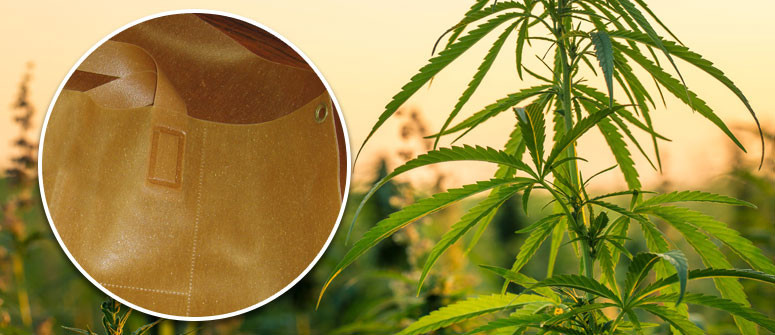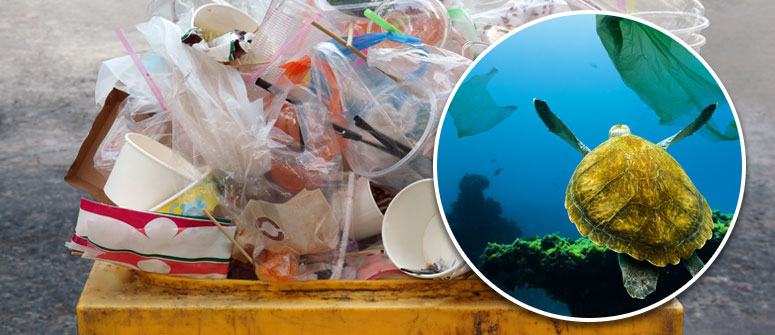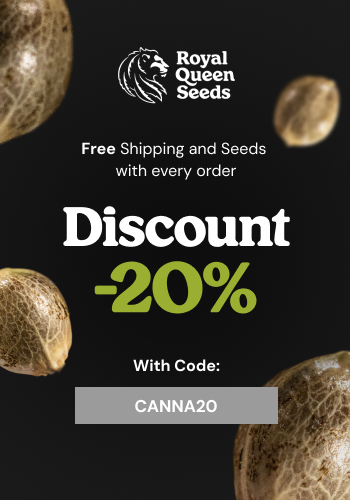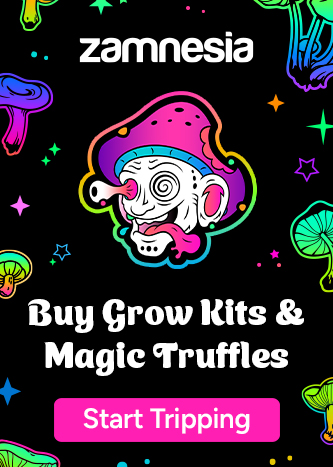Can hemp plastic change the world?

Plastic is a convenient commodity in our lives, but it's also quite destructive for our bodies and the planet. Hemp plastic could be a solution to this problem.
Environmentally-safe alternatives to commonly-used materials like plastic and paper are some of the most innovative uses for hemp. Prior to American prohibition, hemp was a budding industry, making everything from water bottles to car parts.
In fact, hemp was one of the first cultivated plants in history and the oldest cannabis relics date back more than 8000 years.
Although hemp is a strain of the cannabis sativa plant, it has almost nothing in common with traditional, high-THC marijuana that comes to mind for most people.
Contrary to popular belief, most forms of industrial hemp have barely any THC (0.3% or less) and cannot get consumers high. Hemp plants are predominately male, meaning they don’t produce any flowers.
WHAT IS HEMP PLASTIC?
Hemp plastic is a biodegradable - and very affordable - alternative to traditional oil-based plastics. For nearly two decades now, hemp plastic has been manufactured and used throughout Europe and China.
However, it's been manufactured all over the world for much longer than that. Before the 1937 US Marihuana Tax Act, hemp plastic was a growing industry and even after it was banned, hemp plastic products continued to be made until the mid-1940's.
WHAT IS HEMP PLASTIC USED FOR?
One of the most noteworthy utilizations of hemp plastic was Henry Ford's 1941 Hemp Automobile, but if anyone immediately thought of Cheech and Chong’s van, you certainly aren’t alone.
While Ford’s car wasn’t actually made from weed, he was a visionary nonetheless. Not only did he build an entire vehicle out of hemp and other organic materials, the cars were able to withstand impacts 10x stronger than a traditional steel car, and they were 1,000 pounds lighter.
Although plans for a second prototype came to nought, major car companies such as Mercedes, Chrysler, BMW, Volkswagen, Audi, and yes Ford too, are currently following in Henry’s footsteps and incorporating hemp plastic into their new vehicle models.
Other common applications for hemp plastic include electronics, containers, toys, cosmetics, bottles, bags, boats, and furniture.
HOW IS HEMP PLASTIC MADE?
Cellulose (C6H10O5) is a primary part of the cell walls of plants, and the most copious organic polymer on the planet. Cellulose is typically used to make paper, but it can also be used to make a wide variety of plastic products.
Hemp cellulose is extracted from the plant and used to make different plastics; cellophane, rayon, and celluloid, for example. Hemp is a great source of cellulose, comprising around 65-70% per plant.
WHY IS THIS A BETTER ALTERNATIVE?

Despite Hemp’s unjust prohibition with the 1937 Marihuana Tax Act, it's been recently rediscovered as a tremendously beneficial plan, and rightfully so.
One of the biggest advantages of using hemp is that it's a renewable energy source and the products made from it are biodegradable. As soon as the hemp seed is planted, it begins to positively impact the earth around it. Its deep roots help prevent soil erosion, subsequently reducing water pollution. It also grows very easily and requires minimal amounts of fertilizer and no herbicides or pesticides. Using less of these products means there's less water pollution from runoff.
Once it becomes plastic, hemp continues to benefit the earth with its biodegradability. In the right environment, hemp plastic products can completely decompose within 6 months. A traditional plastic bottle can take up to 450 years to completely degrade. Even during the decomposition process, standard plastic products leak harmful chemicals into the environment, such as BPA.
Bisphenol A (BPA) is an endocrine disruptor that's been been linked to a variety of cardiovascular issues, cancer, diabetes, weakened immunity, and many other disorders. In the United States, 93% of adults over six years of age test positive for BPA. Endocrine disruptors mimic the effects of estrogen in the human body, which can stimulate tumor growth when the hormones are too elevated.
Hemp is also economically beneficial. Unlike other crops that primarily grow just in certain geographical areas, hemp can be grown absolutely anywhere in the United States. Furthermore, production potential from hemp far exceeds other crops in the United States. For example, according to the US Dept. of Agriculture, "one acre of hemp can produce four times more paper than one acre of trees." Same goes for hemp plastic, hempcrete (concrete made from hemp), and other hemp products.
HOW COME HEMP IS ILLEGAL IN SO MANY COUNTRIES?
During America's earlier years, hemp production was a legal and thriving industry. It’s baffling to most people that this plant, which requires no pesticides, very little maintenance, and can be grown virtually anywhere, isn't viewed as the cash crop that it obviously is.
Not only is it being underutilized, but hemp production is still illegal in the United States in most cases. There's no clearly defined answer as to why that is, but there are many speculations that point in the direction of the DuPont family and their paper empire as responsible for the Marihuana Tax Act of 1937.
IS HEMP PLASTIC THE FUTURE?
Hemp is again gaining momentum and there has been quite a revival in the past few years.
On February 7, 2014, then-President Barack Obama signed the Agricultural Act of 2014 (also known as the Farm Bill), which includes section 7606 titled "Legitimacy of Industrial Hemp Research." This act allows institutions of higher education and state agricultural departments to grow and research industrial hemp. Hemp production is also legal and flourishing in a total of 23 countries including Europe, Australia, Canada, China and many others; hopefully, the United States follows suit in coming years.
Hemp has proven to be the better material for plastic in many different ways and with the support of farmers, activists, woke (green thinking) consumers and even businesses and politicians, it could really make a change soon.




